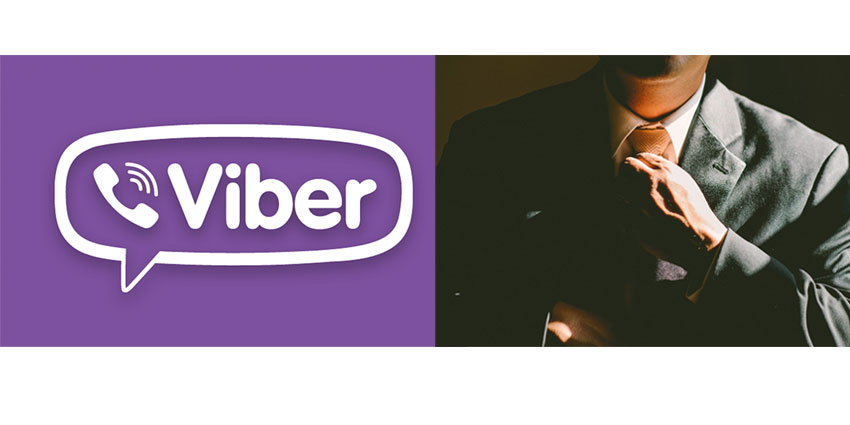In 2016, Viber, the popular messaging app with 1 billion users and owned by Japan’s e-commerce giant Rakuten, launched an experiment with the idea of Public Accounts. Initial reports were that the plan for Public Accounts was to provide a brand new account format for businesses and brands who wanted to communicate with Viber users for marketing and customer service.
Some success came about the Public Accounts platform, boasting customers such as The Huffington Post, Yandex and The Weather Channel.
Two years on, Viber has gone one step further, and launched Viber for Business. Following in the footsteps of applications like WhatsApp, Skype and Facebook, Viber for Business looks set to compete in the business collaboration arena. Recognition of the fragmented messaging market looks to have been a key consideration. Viber looks to unify a business space where they already have a large portion of the consumer space.
Who are Viber?
Viber was formed in 1998, in Israel, as Viber Media. However, the Viber app did not appear in the iPhone app store until December 2010. By summer 2013, Viber was operating over Android, Linux, Windows and Mac and by 2018 has surpassed 900 million users worldwide.
Particularly popular in Russia, with circa 100 million users, Viber’s growth gained extreme attention from potential investors. In February 2014, Rakuten announced they had acquired Viber Media for $900 million, equating to roughly $1 per user.
Who are Rakuten?
Rakuten is a Japanese e-commerce business founded in 1997. Its e-commerce platform Rakuten Ichiba is, by far, the largest e-commerce site in Japan. By number of sales, it ranks as one of the world’s largest websites. Outside of e-commerce, Rakuten also run Japan’s biggest internet bank and credit card company. They also offer fintech, digital content and communications services to over 1 billion members around the world, and operates in 29 countries and regions.
Rakuten has grown exponentially through is business plan to acquire major companies. Major acquisitions include Buy.com, Play.com and as of 2014, Viber.
 Viber for Business
Viber for Business
Viber for Business is set to be a mixture of business features and functionality like audio and video calls. It will also see the continuation of popular consumer grade features like expressive stickers. Viber currently boasts tens of thousands of stickers and GIFs for every possible expression.
As well as replicating the consumer experience in the business app, Viber has made advancements in security to ensure their app doesn’t lag behind enterprise grade messaging apps like Slack or Microsoft Teams. Viber are keen to point out on their marketing materials that they do not and cannot listen into voice or video calls, and will not read your messages. In the same vein, whilst you may see ads, these will not be targeted based on information you exchange with other users on the app.
Key Features
Viber for Business showcased key features required by every collaboration vendor to compete in the marketplace. You can expect HD voice and video calls as standard, as well as the ability to send texts, photos, GIFs and stickers. Business conversations see the personalised look and feel, with the addition of optional video and music clip sharing.
In order to position itself in the enterprise, Viber for Business also comes with the ability to record voice and video clips to send later, delete important messages with incorrect information and is able to sync messaging history across all platforms.
Uniquely, Viber for Business has the ability to transfer a mid-call conversation from mobile app to the desktop.
Communities
Viber for Business is more than just a messaging app. With a look and feel similar to that of Workplace by Facebook, Viber for Business also includes communities. Here, you can add unlimited members, restrict via admin control and a embrace a whole new group chat experience.
Newly added members to the group can see the chat history, rather than relying on colleagues to catch them up. Member privacy can be hidden, so users are restricted to messaging via Viber. This is unique, and welcomed, in most businesses. Think the company WhatsApp group or the email signature containing your personal mobile number.
Discussions are kept under control with appointed moderators and super-admins. They even have the capability to ban users that are seen as breaking the rules for that particular community.
Similar to one to one messaging, security features such as encryption, message deletion and conversation management are pre-packaged as standard.
Market Positioning
With the business messaging market flooded with great players ranging from giants like Cisco with Webex Teams to niche vendors like Twist and Rocket Chat, it’s crucial for new entrants to be prepared with a unique proposition. Viber obviously has the desirable position of already having over 1 billion consumer users – not to dissimilar to that of Skype when they were acquired by Microsoft.
Viber for Business position their new collaboration product as highly popular, high quality and low cost. Analytics available suggest Viber should know what they are working with and they are not shy to show they feel they know their audience intimately.The Viber for Business media pack is full of stats and insights showcasing Viber’s intel when it comes to taking their consumer product into the business market. Some of these include:
- 20 messages are sent per person, per day
- 30 minutes are spent on calls on Viber per person, per day
- Viber is opened 12 times per person, per day
- 50% of Viber users share photos and videos daily
- 30% of Viber users are sending stickers each day
Viber go on to comment that their product will boost business productivity in a number of ways. By using Viber for Business, your business should expect an active and engaged audience on a consumer-first platform. Users will experience a premium quality communication environment with a brand that promotes loyalty and conversion. Marketing and service will be improved through active audience enablement and consultative account management.
It is highly refreshing to see a successful consumer-grade app moving into the business market without changing its core principles. Viber for Business will no doubt take off with its already established client base. It will intriguing to see how much of the already clustered marketplace they can leverage from firmly established competitors.






